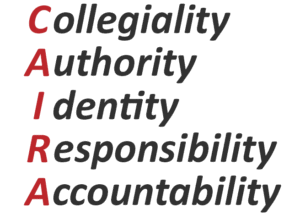I am already receiving supervision, but it does not seem all that helpful. How do I work out whether I’m receiving effective supervision?
CAIRA pastoral supervision operates within a supportive, safe and confidential relationship which provides a regular opportunity to reflect on your ministry and professional growth..
Central to this relationships is an atmosphere of trust and openness between the supervisor and supervisee.
Effective supervision includes the following elements:
- Takes place in a safe and supportive environment, where there is trust and openness.
- There is space for me to reflect on what I do and how I do it.
- The supervisor gives me his or her full attention.
- I have the responsibility to present issues that are important enough to spend time on. Experiences discussed include relational conflicts, boundaries and stressful issues requiring sensitive discussion.
- I am encouraged to find other ways of looking at things, to discover and explore my options, come to my own conclusions and decisions and acknowledge my strengths and successes.
- The supervisor does not give lots of advice, take responsibility for my work, or respond to my words but miss my feelings.
- Assists in responding to issues arising in paid or voluntary responsibilities.
 The desired outcome is a continuing improvement of quality in the service offered. Research shows a high correlation between good supervision, job satisfaction, and effectiveness in your role.
The desired outcome is a continuing improvement of quality in the service offered. Research shows a high correlation between good supervision, job satisfaction, and effectiveness in your role.
There are several models (approaches) for pastoral supervision. We promote the CAIRA model, where the acronym CAIRA stems from its five key interconnected lenses.
This program is well-researched, evidence based, and standardized by university curriculum writers.